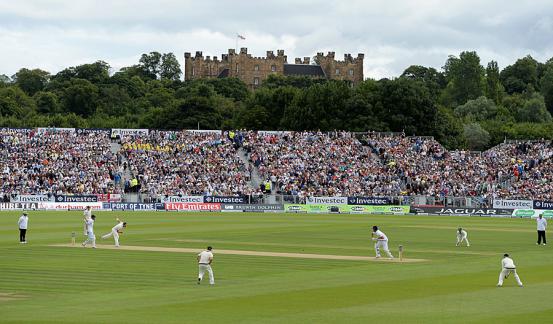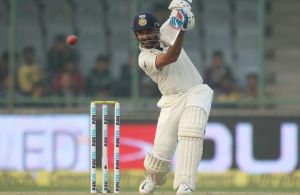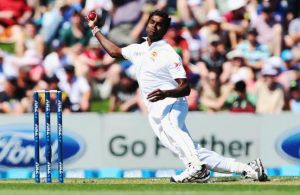- Commissioner’s statement on Ventura, Marte
- Ronnie O’Sullivan: Masters champion ‘felt so vulnerable’ in final
- Arron Fletcher Wins 2017 WSOP International Circuit Marrakech Main Event ($140,224)
- Smith challenges Warner to go big in India
- Moncada No. 1 on MLB Pipeline’s Top 10 2B Prospects list
- Braves land 2 on MLB Pipeline’s Top 10 2B Prospects list
- Kingery makes MLB Pipeline’s Top 10 2B Prospects list
- New Zealand wrap up 2-0 after Bangladesh implosion
- Mathews, Pradeep, Gunathilaka to return to Sri Lanka
- Elliott hopes for rain for Poli
Will Sri Lanka Test be Durham’s last?
- Updated: May 25, 2016

News that Ben Stokes will not appear in the second Test comes as the latest setback to Durham, a club struggling with fortune and finance.
With ticket sales for the game modest – the most recent ECB sales report states that 25,373 have been pre-sold for the first four days, around 45% of those available – the club dearly needed Stokes, something of a local hero, to attract last-minute buyers. If they had any luck at all, it would be bad.
If you judge Durham as a centre of cricketing excellence they are in excellent health. Unlike some high-profile rivals, they are committed to developing and backing players from the region. While there have been a few experienced pros from other countries brought in over the last decade, the only high-profile acquisition from another club in recent years came when Ian Blackwell joined from Somerset.
They routinely field sides including eight or nine players developed from within their own system and have produced several England fast bowlers, notably Stokes, Mark Wood, Steve Harmison and Graham Onions. Without their introduction to the County Championship, many could have been lost. They have a valuable role within the English game.
But if you judge Durham as a business, they are failing. They are at least £5m in debt and have invested in a business model that does not seem to be working. They need help from the ECB to remain viable and are currently in talks to both reschedule their staging payment for the Sri Lanka Test and help with the debt. They can ill-afford to take a hit on this game.
Durham were not dealt a handful of aces with the allocation of this Test match. It was wrapped up in a package of games that included the Ashes Test of 2013 but, at the time they bid (it is costing them around £950,000), they did not know that it would follow so close on the heels of another Test against the same opposition in the north of England in May. Selling any game in the region at this time of year was always likely to prove challenging; selling two games against Sri Lanka – who do not attract the numbers of some other touring sides – was always going to end badly.
To make matters worse, the game starts on Friday – meaning there is only one day of corporate sales (it is sold out, which is both pleasing and infuriating at the same time as it shows what might have been) – and is played over a Bank Holiday, when the club feels that a number of prospective spectators may take holidays. While the club’s chief executive, David Harker, believes that ticket sales in the last 48 hours have been strong this allocation represents, by any standards, poor planning from the ECB.
The underlying problem is familiar: in the need to satisfy broadcasters, England are squeezing more international games into their home season than the market can stand. While it is easy to suggest reducing the schedule, the impact of that could be disastrous. Lower broadcast revenues could sink clubs and reduce the money distributed to the England teams and to grassroots. There is not an easy solution.
The ECB executive understand all this. They know the England team plays too much for the market and the players’ long-term health and they know …
continue reading in source www.espncricinfo.com



